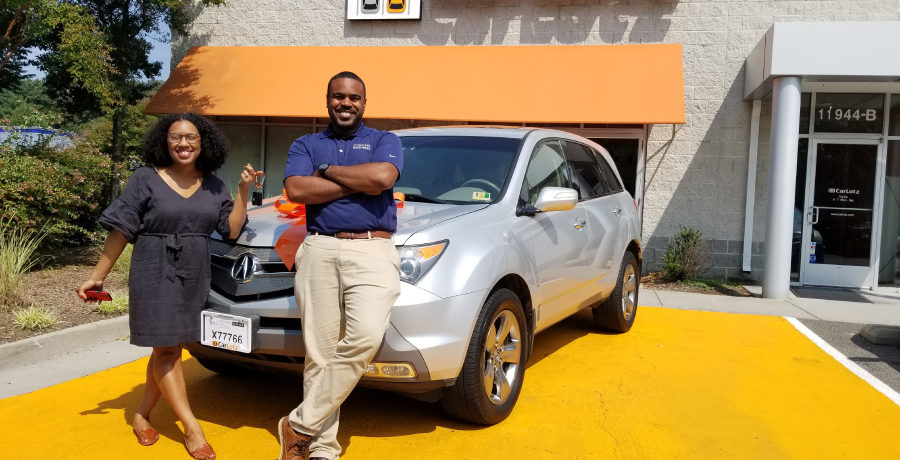CarLotz, a used vehicle consignment and retail remarketing business headquartered in Richmond, is celebrating National Consignment Day by encouraging others to consider the consignment model as a smart and sustainable way to shop, earn money, and extend the lifecycle of a wide variety of items – including used automobiles. National Consignment Day, which was established by The RealReal in 2017, is observed the first Monday of October every year, marking a period of time that CarLotz and others around the United States recognize consignment as a key stimulator of the circular economy.
In its most basic form, consignment means dropping off whatever you want to sell at a consignment store – whether it’s your old clothes, a favorite book, or that old teapot Aunt Betty gave you for the holidays. From there, you let a consignment shop do the work for you. The consignment store might have a mini storage unit (similar to the likes of Lynchburg mini storage facilities) wherein they store your discarded or sold items. Once your item has been sold by the shop, you receive a check equal to the sale price of your item, less the fees you pay the store. In modern times many people and even consignment stores themselves host their listings on Ebay or Amazon. Some of these people look at courses like private label masters review to find out how to make a business out of selling old things online.
“Recently, a growing trend toward auto consignment has emerged based on the same simple yet effective model,” explains Michael Bor, CEO and co-founder of CarLotz. “Selling a used vehicle privately comes with an array of challenges and hassles, making auto consignment a smart choice.”
Bor points out, however, that having someone else sell your automobile is much different from having someone sell an old teapot. Auto consignment involves professionally marketing a much higher priced item that requires significant prep work, product knowledge, skills to facilitate negotiations, the ability to meet buyers’ needs for financing and service contracts, and a variety of other factors that complicate the sale process, including looking at how auto leads, as well as other auto-based practices, can be used to help sales.
“While the consignment model can maximize the proceeds and speed of sale for sellers, it’s also a convenient and efficient option for vehicle buyers,” explains Bor. “Safety is often a concern in private party car sales. Consignment can protect both sellers and buyers alike.”
Auto consignment shops like CarLotz and the ones you might find by clicking here tend to offer products and services that many buyers need but often cannot purchase on their own in the private market. For example, vehicle consignment shops may have the ability to arrange financing for buyers. They may help buyers eliminate the risk of buying a used car by offering aftermarket service contracts. In addition, many can ship cars directly to buyers as a way to expand the seller’s customer pool to shoppers nationwide.
“These types of valuable options help both sides of the transaction. Warranties, financing, and shipping are difficult, if not impossible for sellers to provide on their own,” says Bor. “Ultimately, auto consignment is the best option for vehicle owners who want more money for their car than the dealer trade-in price because the vehicle will be marketed professionally without the traditional hassle and frustration of trying to sell it yourself.”
The consignment model for cars – and any item for that matter – is fairly simple, but with lasting impact. A good consignment store brings a level of professionalism and service that most individuals are unable to achieve on their own, and as a result, the consignment model maximizes the sale price while removing the hassles found in the sale-by-owner market.
An increase in consignment shopping was first noted in the wake of the Great Recession, and as a result, a host of online and offline opportunities were created for smart buyers and sellers. Industry experts point out that there was a fundamental shift during that period of time in the way consumers relate to secondhand goods. Shoppers who once reluctantly purchased used cars and other secondhand items in the past due to uncertainty about product quality are now turning to consignment options in increasing numbers thanks to quality guarantees coupled with inventory in verified, like-new conditions at incredible prices. And for some, consignment is not only about earning and saving money. A growing number of Americans are also considering the environmental impact of consignment shopping and selling as a more sustainable choice.
“National Consignment Day is a good time to stop and really think about all of these smart, sustainable reasons to shop, earn money, and extend the lifecycle of a variety of products, including used vehicles,” says Bor.
To observe National Consignment Day, CarLotz is recommending that Richmonders consider consigning a product, luxury item, vehicle, or other used item. Donations to charities working to support good causes through donated goods are also encouraged on National Consignment Day. Those celebrating National Consignment Day, like CarLotz, are demonstrating their commitment to sustainable living and conscious consumption by posting their consignment stories on social media using the hashtags #NeverThrowAway and #NationalConsignmentDay.


